Day of Military Glory of Russia, the Battle of Borodino, August 26 (September 7 in a new way)
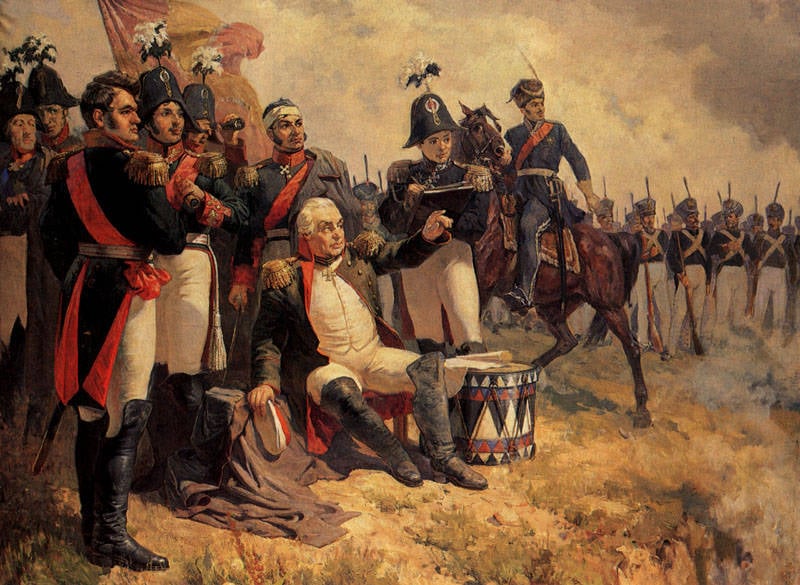
In August, 1812 of the Borodino field was confronted in a fierce clash by two opposing armies: the Russian army under the command of Infantry General Mikhail Illarionovich Golenishchev-Kutuzov and the Great Army of the French Emperor Napoleon Bonaparte.
About 300 of thousands of people with 1200 artillery guns participated in this grand battle on both sides.
24 August a fierce battle broke out in the area of the village of Shevardino. 11-thousandth detachment under the command of A.I. Supported by units of the 36 Grenadier and 2 S Combined Grenadier Divisions, Gorchakov with 2 guns was repeatedly attacked by superior enemy forces. On the part of Napoleon, about 40 thousands of people participated in this battle with 186 guns. Before the onset of darkness, the Russians held a position at the Shevardino Redoubt, which had been erected the day before as the forward strong point for the defense of the left flank of the Russian army. Already in the night, by order of the Commander-in-Chief, Lieutenant-General Gorchakov led the remnants of their troops to the main position near the village of Semenovskoye. Losses in this battle on each side amounted to 6 thousands killed and wounded.
25 August in the area of the Borodino field of active hostilities was not conducted. Both armies were preparing for a decisive, general battle, scouting and building field fortifications.
According to the disposition signed by M.I. Kutuzov 24 August, 114 thousands of soldiers of the regular army with 624 guns, along with 9500 Cossacks and almost 22-thousandth Moscow and Smolensk militias located on the front 8 km from northeast to south from the confluence of the river Kolochy in the Moscow River to the village Utitsa .The position of the right flank, consisting of the troops of the 1 th Western Army (about 86 thousand people) under the command of the General of Infantry MB Barclay de Tolly, passed from the Moscow River along the high right bank of the Kolocha River through the New Smolensk road and ended at the Raevsky battery in the center of the Borodino field. The left flank, consisting of compounds of the 2 of the Western Army (about 34 thousands of people) under the command of the Infantry General from I.I. Bagration, started from the Rayevsky battery (inclusive) and ended in the Utitsky Forest, where the Old Smolensk Road ran. Main apartment M.I. Kutuzov located in the estate Tatarinovo east of the village of Borodin.
Napoleon decided to deliver the main blow to the left flank of the Russian position. The role of auxiliary strikes was assigned to attacks on the village of Borodino and on the corps of General Tuchkov-1, who defended his position on the Old Smolensk Road.
26 August already by five o'clock in the morning the French army, having in its composition about 135 thousands of people and 587 guns, is located as follows. On the right flank, in the Utitsky Forest on the Old Smolensk Road, is the Polish Corps of General Poniatowski, between the Utitsky Forest and the Koloch River - the corps of Marshals Davout and Ney, General Junot, the Old and Young Guards, and three reserve cavalry corps of Marshal Murat. On the left flank, across the river Kolochya, there is the Italian corps of the viceroy Eugene Beauharnais, the stepson of the emperor Napoleon, two infantry divisions and the cavalry corps of General Grusha assigned to him on the day of the battle. Napoleon's headquarters is located near the village of Valuev in the north-western outskirts of the Borodino field, and the command post is located at the Shevardino Redoubt.
Around 6 in the morning of August 26, the famous battle of Borodino began. The division of General Delzon from the corps of Beaugarna suddenly attacked the village of Borodino and by 7 hours of the morning ousted the defenders of this village - the Life Guards Jäger regiment, which retreated and took up a position on the right bank of the Kolochi River. Three Jaeger regiments arrived in time for the help of the rangers, and all the enemy’s attempts to break through the Russian defenses were unsuccessful.
Almost simultaneously, the main attack was inflicted on the Russian left flank, on the Semyonovskiy (Bagrationov) flushes, which were the advanced fortifications of the general defense system of the left flank. Fierce fighting in this direction lasted almost until noon.
Marshal Murat in the Battle of Borodino. Lithograph of fig. H.V. Faber du Faure. 1830-s.
Tens of thousands of people with the endless rumble of 800 guns came together in bloody combat. In a united effort to defeat the enemy, Russian infantry, artillery and cavalry repulsed several attacks; while flushes repeatedly passed from hand to hand. After the injury of Prince Bagration, at around 10, in the morning, Lieutenant-General P.P. takes command of the troops. Konovnitsyn, who, assessing the situation, gives an order to leave flushes and their defenders to leave Semyonovsky ravine for gentle heights.
In the afternoon, Napoleon, obsessed with striving to break through the defenses of the left flank of the Russian troops at all costs, threw the Latour-Mobour and Nansuti cavalry corps into attack. At that time, on the orders of Kutuzov, Lieutenant-General DS received command of the forces of the left flank. Dokhturov, as he was called in the Russian army, was an “iron general,” who managed to organize the defense of the Semenovsky heights on time and competently.
At some village, Semenovskoe was in the hands of the enemy, but his attempts to break through the defense of the left flank were not crowned with success. The Life Guards Izmailovsky, Lithuanian and Finnish regiments, supported by the Life Guards of the Artillery Brigade, valiantly repelled the fierce attacks of the enemy, "covering themselves in the sight of the whole army with unfading glory."
The center of the Russian position — the Raevsky battery (the “Big Redoubt”) —was attacked twice by the foot soldiers of Beauharnais and Davout in the first half of the day, but both enemy attacks were repulsed.
In the battles for Utitsky kurgan on the left flank of the corps N.A. The 1 Tuchkov courageously restrained the onslaught of the Polish corps of General Poniatowski, who was trying to bypass the tip of the left flank and enter the rear of the Russian army.
By noon, when the tense situation was created in the center of the Russian position and on its left flank, the Guards Cavalry Corps of Lieutenant-General F.P. Uvarova and parts of the Don Ataman MI Troops Platov on the orders of Kutuzov made a raid on the left flank of the enemy. This sabotage diverted part of Napoleon’s army from the main attacks, providing a temporary respite for the forces of the left flank that were exhausted from the attacks of the enemy.
In the afternoon, the Rayevsky battery again became the epicenter of events. The cavalry of General O. Kolenkura collapsed to the central height and occupied it. Trying to develop success, the enemy attacked the Russian regiments east of the captured battery, behind Ognik stream. But the Russian dragoons and cuirassiers, including the Life Guards Equestrian and Cavalry Guards regiments, overturned the French.
The fighting continued until 9 hours of the evening. In the final part of the battle, Russian artillery distinguished itself, which "silenced the French artillery." By the end of the day on August 26, both armies remained on the battlefield.
The battle of 26 in August 1812 was the bloodiest in the military stories that time. The losses of each side amounted to thousands of people killed, wounded and missing in 40. This day to solve the most important strategic task - Napoleon Bonaparte failed to smash the enemy's army in one general battle. The Russian army was still a formidable force. By order of M.I. Kutuzov early in the morning of August 27, Russian troops began to leave the battlefield in order to rally new forces to drive the enemy out of the homeland.
The emperor Napoleon later recalled: “Of all my battles, the most terrible thing that I gave near Moscow. The French have proved themselves worthy of winning, and the Russians are called invincible. ”
“This day will remain an eternal monument of courage and excellent courage of Russian soldiers, where all the infantry, cavalry and artillery fought desperately. The desire of everyone to die on the spot and not give in to the enemy, ”MI gave such a high assessment to the Russian army on August 26. Kutuzov.
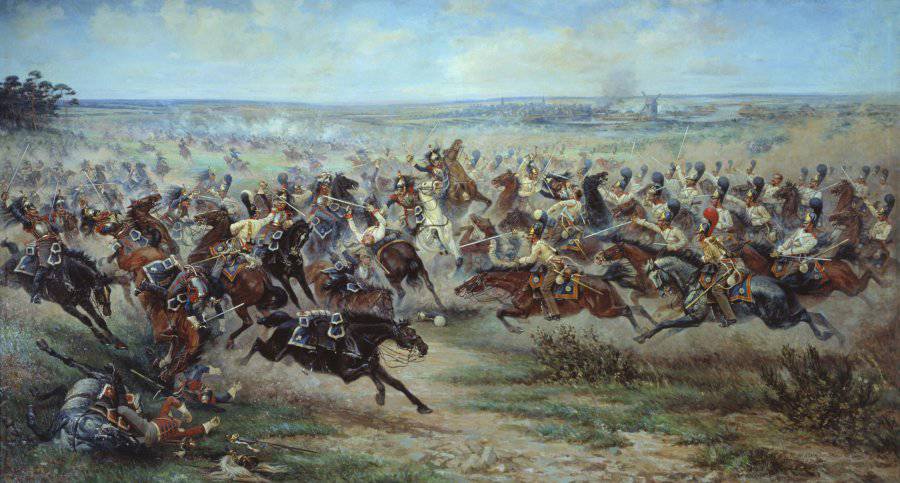
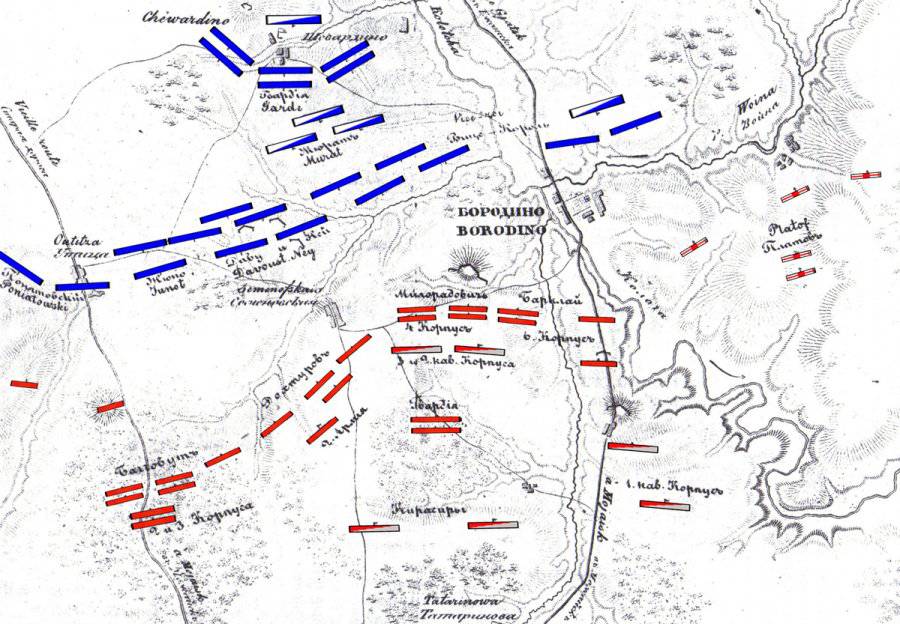
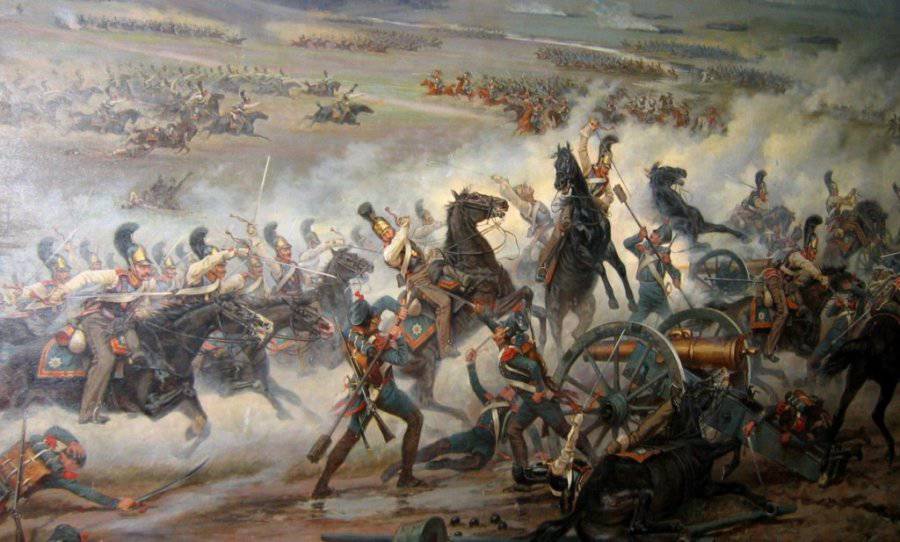
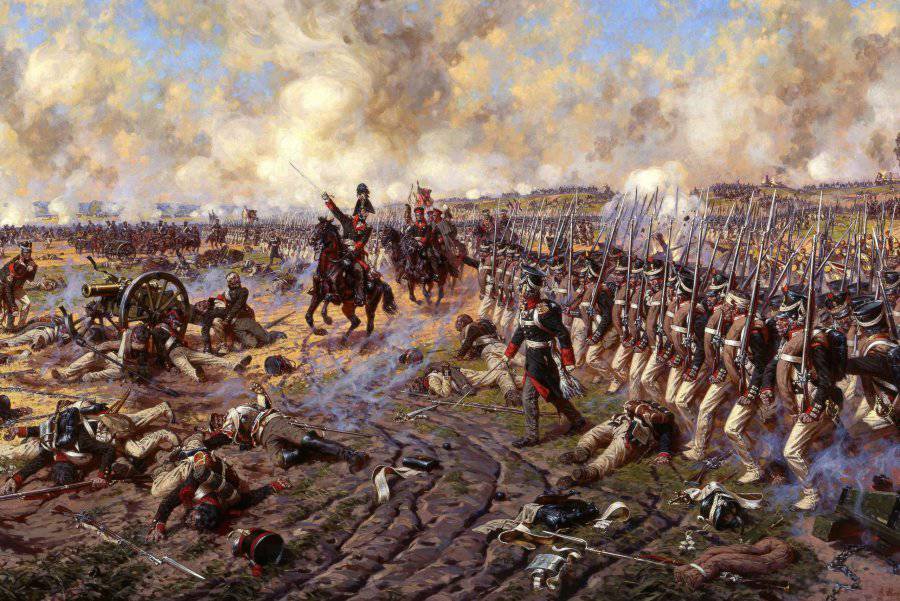
Information